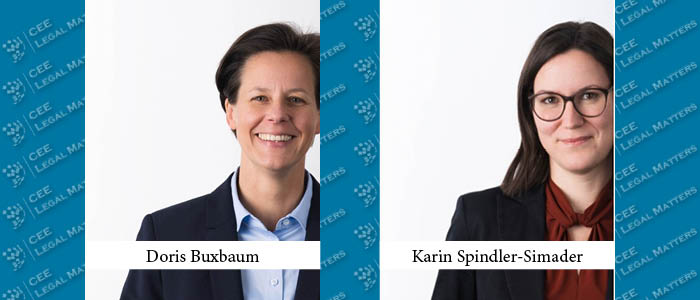A new legal company form and the reduction of the minimum share capital of limited liability companies is expected to make Austria more attractive in the international corporate landscape, particularly for start-ups and venture capital companies.
According to the current draft law, the so-called flexible company (FlexCo) is introduced as a new corporate legal form in Austria. In addition to a simplified internal decision-making process of the shareholders, the creation of so-called “company value shares” is intended to facilitate the corporate participation of employees as an alternative to former, merely obligatory (virtual), forms of participation. Along with this new legal company form, the minimum share capital for limited liability companies will be reduced to EUR 10,000. The new law was originally planned to enter into force on 1 November 2023 – new prospective date for entry into force is currently 1 January 2024.
The following briefly summarizes:
-
key considerations of the new flexible company;
-
changes to (ordinary) limited liability companies due to the reduction of the minimum share capital; as well as
-
tax-related implications thereto.
1. Flexible Company
Provided that the applicable law for the new flexible company (the so-called “FlexKapGG“) does not contain any deviating provisions, the (already existing) provisions applicable to (normal) limited liability companies shall apply. The legislator describes the FlexCo as a hybrid form between a limited liability company (GmbH) and a stock corporation (Aktiengesellschaft), since the FlexCo provides for the possibility of holding own shares as well as certain flexible capital measures.
In detail:
Simplified raising of capital / lower participation quotas: Regarding the share capital of EUR 10,000 – the same now also applies to (ordinary) limited liability companies – only EUR 5,000 have to be paid in cash. The minimum share contribution by a shareholder is only EUR 1 (instead of EUR 70 as is the case for an (ordinary) limited liability company).
Simplified decision-making process / non-uniform voting: In contrast to the (ordinary) limited liability company, the articles of association of a FlexCo may foresee that consent from all shareholders is not required for a written (circular) resolution. Insofar as the articles of association provide for this option, a resolution is deemed valid if all shareholders entitled to vote can participate in the vote – but do not necessarily have to do so. Caution: Despite this simplification, a majority of the votes cast is not sufficient for a positive resolution, but rather at least half of all available votes are required (e.g. in the case of a simple majority requirement).
A shareholder with more than one vote may also exercise the voting right inconsistently (for example, if a share is partially held in a trust for a third party).
Simple transferability: For share transfers or takeover declarations in the context of capital increases, a private deed by a notary public or lawyer shall be sufficient for the fulfilment of formal requirements as an alternative to an Austrian notarial deed.
Company value shares: The actual core of the new company form lies in the creation of a new share class, namely the so-called “company value shares”. This new class of shares is based on the idea that, particularly in the case of start-ups, the opportunity for employees to participate should be facilitated, whereby such shares only grant limited shareholder rights but with reduced economic risk. This ultimately serves as an incentive or remuneration at a time when a start-up is in the development or growth phase, with the prospect or hope for a profitable sale (exit) in the future.
-
Participation/Liability: Company value shares can be issued (but do not have to be issued to employees only) to the extent of a maximum of 25% of the share capital. The lowest permissible participation quota of a capital contribution is one cent. Capital contributions must be paid in full. In any case, there is no default liability and no obligation to make additional contributions.
-
Shareholders’ rights: Company value shareholders are entitled to a share in the balance sheet profit and liquidation proceeds in proportion to their paid-in share capital contributions. Other shareholders’ rights are quite restricted. Apart from the right to information and inspection of the company’s books, shareholders (with a few exceptions) have no voting rights and no right to challenge or nullify shareholders’ resolutions. They are, however, entitled to participate in shareholders’ meetings and to be informed about written resolutions being passed.
-
Formal requirements: For the takeover or transfer of a company value share, only a written form requirement is necessary; that is to say, in contrast to ordinary limited liability company shares, no Austrian notarial deed is required to ensure simple and cost-efficient transferability, especially in the context of vesting programs.
-
Publication: Holders of a company value share will not be individually registered with the Companies’ Register. Only the total sum of the company value shares and the thereupon paid-in capital contribution will appear in the Companies’ Register. Instead, the managing director is required to keep a share register (similar to that of a stock corporation) for the company value shares in which the name, date of birth or registration number and capital contribution, along with the thereupon paid-in capital, are to be recorded. This information is to be kept by means of two lists, namely a list of names, only containing the names, dates of birth or registration numbers of the holders of company value shares, and a list of shares that contains the details of the individual capital contributions. Only the list of names is added to the publicly available documents, while the list of shares is to be filed with the Companies’ Register, but may only be inspected in cases of demonstrable legal interest.
-
Tag-along-right: The articles of association of a FlexCo must (if company value shares are issued) provide for a tag-along-right for the company value shareholders in the event that the founding shareholders sell a majority of their shares to third parties. In such a case, the price to be offered to the company value shareholders must correspond to the price which the founding shareholders will receive. The following fundamental protection mechanism shall apply in favour of the company value shareholders: In cases of successive sales by the founding shareholders, where higher prices were achieved in previous sales compared to the currently intended sale, the company value shareholders must be offered a price corresponding to the weighted average of the higher prices in previous sales and the price for the currently intended sale.
-
Information requirements for the protection of employees: Before taking over a company value share for the first time, an employee (this term includes salaried employees as well as freelancers) must be informed of the nature of a company value share and the material provisions of the articles of association. This information shall be provided in writing and must be delivered verifiably to the employee two weeks prior to the takeover/subscription of the company value share.
-
Selling right: The articles of association shall determine to whom, and under which conditions, employees may sell their company value shares upon termination of their employment relationship. This shall ensure that employees may also terminate their corporate relationship when leaving the company.
-
Conversion into ordinary shares: Company value shares may also be converted into ordinary shares. This, however, requires the approval of all the company value shareholders concerned.
Own shares: The acquisition of own shares is generally prohibited in (ordinary) limited liability companies, whereas the acquisition of own shares is possible in the FlexCo (similar to stock corporations); this, inter alia, is the case with company value shares, if a company buys-back such shares from employees or for the purpose of keeping shares in stock, prior to the planned issuance of employee shares. FlexCo’s own shares may not exceed one third of the share capital.
Issuance of par-value shares: The articles of association may allow shares to be divided into units of at least EUR 1. Each shareholder may hold multiple units of the same or different classes of shares. The reason being that, in the course of financing rounds, shares are oftentimes issued with different rights attached thereto and the official holding of such different share classes shall be facilitated by this new provision.
Flexible capital measures: Further, the FlexCo may use several flexible capital measures (otherwise only reserved for stock corporations), such as a contingent capital increase as well as authorized capital.
Conversion: The conversion of the FlexCo into an (ordinary) limited liability company or a stock corporation (and vice versa to a FlexCo) is permitted.
2. Reduction of the minimum share capital of (ordinary) limited liability companies to EUR 10,000
As the second important pillar of the amendment, the minimum share capital of (ordinary) limited liability companies is reduced from EUR 35,000 to EUR 10,000, of which only EUR 5,000 have to be paid in. This reduction obviously intends to facilitate the establishment of (ordinary) limited liability companies as well as FlexCos for cash-strapped start-ups and small and medium sized enterprises.
Under the so-called founding privilege, the establishment of an (ordinary) limited liability company with only EUR 10,000 had already been possible (of which only EUR 5,000 had to be paid in). However, this privilege ended/expired ten years after the company’s registration with the Companies’ Register, which in turn triggered the obligation to pay the (remaining) minimum share capital of an ordinary limited liability company. Due to the current reform of the Austrian Limited Liability Act, the minimum share capital will be reduced to EUR 10,000. With respect to companies established under the founding privilege, the former obligation to pay the difference to the prior minimum share capital shall no longer apply.
3. Tax-related implications
In connection with the reduction of the minimum share capital, the minimum corporate income tax will also be reduced. According to the current draft of the Start-Up Promotion Act, with effect as of 1 January 2024, the minimum corporate income tax for (ordinary) limited liability companies shall only be EUR 500 per year.
The introduction of the FlexCo is also accompanied by a tax novelty for start-ups with respect to employee-participation schemes. According to the draft law, a new tax scheme shall be applicable for any shares issued as of 1 January 2024, whereby taxation shall occur only after such a participation has been sold. This will prevent “dry income” as well as an immediate valuation upon the issuance of such shares. Another advantage is the application of a flat tax of 27,5% applicable to three quarters of the sale proceeds following the lapse of certain time periods (three years of employment and a five-year holding period). Benefits also apply to the municipal tax, the employer contribution and social security contributions.
In order to qualify as a start-up-participation, the following conditions need to be fulfilled:
-
The participation must be granted with respect to the employer company;
-
The participation must be granted within ten years of the company’s founding;
-
The participation must be granted free of charge or at the nominal value;
-
The employer must not (i) employ more than 100 employees, (ii) generate revenues exceeding EUR 40 million and (iii) be included in a consolidated financial statement (the latter also applies to the company’s shareholder holding a participation exceeding 25%);
-
The employee must not already hold a participation equal to or exceeding 10%.
The participation may then only be sold with the consent of the employer. Apart from the sale of the shares, taxation also occurs if transfer restrictions are lifted, the 10% limit is exceeded, the employer is liquidated or the employee dies, in cases where the Austrian right of taxation is restricted or the employment relationship is terminated (except for company value shares, under certain requirements). The taxable value shall then be the shares’ fair market value.
By Doris Buxbaum, Counsel, and Karin Spindler-Simader, Consultant, Wolf Theiss


